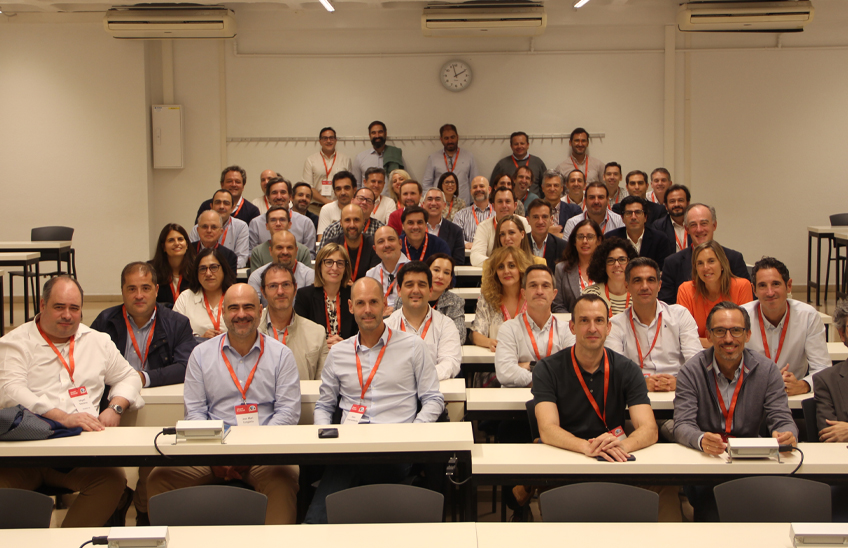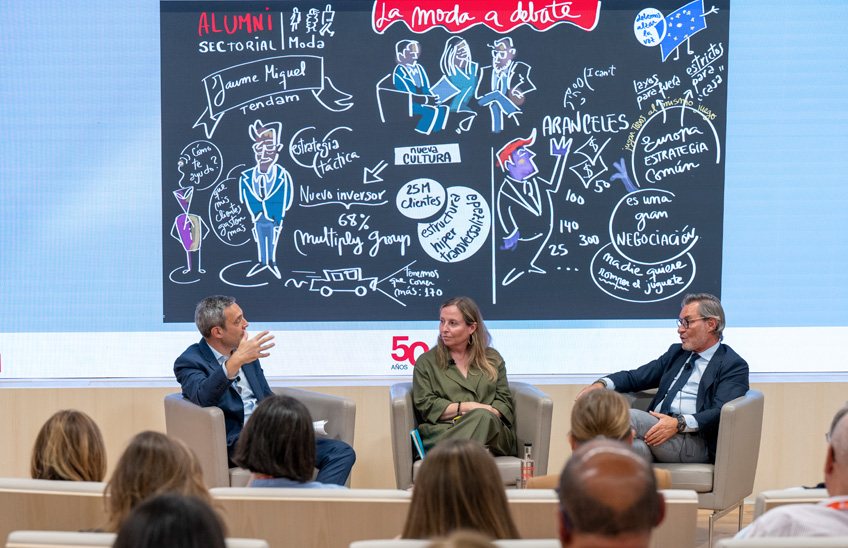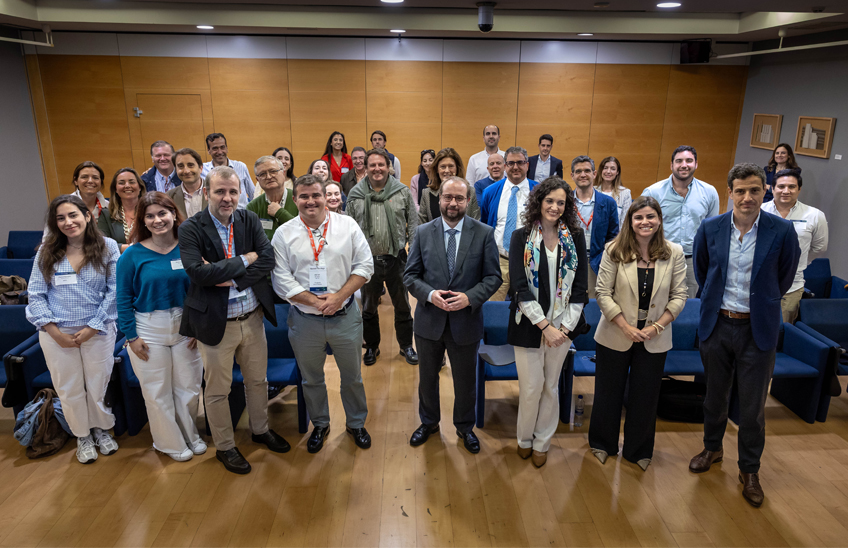Dr. Miguel Ángel Idoate: "Cancer is the same as it was 100 years ago, but environmental conditions are not, which is why new generations are more susceptible to disease".
The dialogue between doctors Bruno Sangro and Miguel Ángel Idoate brought together more than 100 people at the first Alumni Meeting Seville organized by the University of Navarra.

FotoALUMNI/DoctorsMiguel Ángel Idoate and Bruno Sangro, during the meeting alumni of the University of Navarra held in Seville.
10 | 05 | 2024
"Cancer is the same as it was 100 years ago, but environmental conditions are not, which is why the new generations are more susceptible to getting sick". Anatomy This was stated by Dr. Miguel Ángel Idoate (MED'82 | PhD'87), Full Professor at the University of Seville and specialist in the Pathology Service of the University Hospital Virgen Macarena, at the Alumni Meeting organized by the University of Navarra in Seville.
More than 100 people, including alumni, friends and the general public, came to the Real Círculo de Labradores to listen to the session "Live longer and better: the future of medicine is written with P" [Personalized & Preventive]. The event included a colloquium where the present and future of cancer was discussed, with the intervention of Dr. Bruno Sangro (MED-PhD'94), coordinator of area of Liver and Pancreatic Cancer of the Cancer Center Clínica Universidad de Navarra.
The event began with a welcome from Patricia García Mahamud [MERC'20], member of the board Alumni Sevilla and presenter of the event. After a brief introduction and presentation of the speakers, she gave way to Dr. Sangro who presented the Cancer Center Clínica Universidad de Navarra (CCUN). During his speech he highlighted the importance of this research center in light of the increase in cancer diagnosis. He also explained that 280,000 new cases of cancer will be detected in Spain in 2023, according to data of the Spanish Society of Medical Oncology. In addition, he pointed out that this disease has become the second most common cause of death in the West and therefore it is necessary to invest in prevention and treatment of the disease.
During the conversation, Dr. Idoate explained that the new generations are more susceptible to the disease "due to factors such as pollution, solar exhibition , ultra-processed foods and smoking". With such varied factors, Dr. Idoate also pointed out that "medicine based on blocking specific proteins and altered genes in each patient increases the effectiveness of the treatment and makes the cancer process more bearable because personalized treatment is less aggressive than chemotherapy". Finally, for Dr. Sangro one of the advances in oncology research is "the recognition of the things that make a patient's tumor different from the tumor of a neighbor or friend". He also highlighted the current possibility of developing treatments that act on this difference in tumors and thus create personalized treatments that help to change patients' lives. For Dr. Idoate, "the desire of every physician is to cure cancer, but as long as this is not possible, the medical research will continue along the lines of being able to block many altered proteins at the same time in order to increase the efficiency of treatments every day".
This was followed by questions from the audience. Through them, the audience expressed their doubts about the impact of the pandemic on the research against cancer and the capacity of the world's health systems to treat so many cancer cases at the same time.
At the end of the event, the president of board Alumni Sevilla, Alfredo Rosa (DER'95), thanked the alumni and invited them to continue at contact with the University. Finally, the attendees were able to enjoy a cocktail in which the Seville alumni were able to meet and network.



